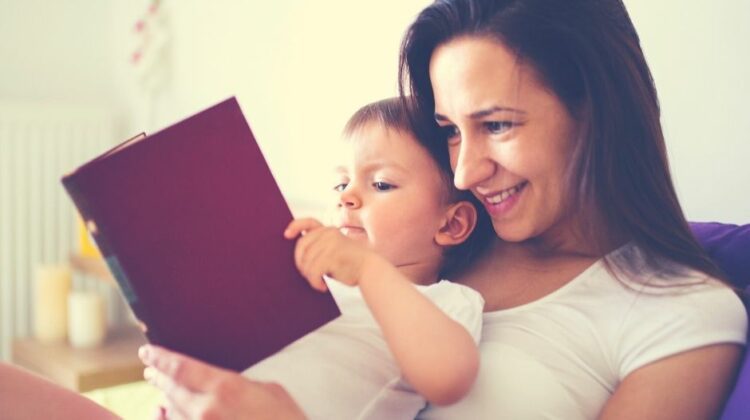
Pregnancy Magazine takes books very seriously, so when we recommend the best parenting books, you’ll know they’re solid choices. They’re full of practical advice to help you raise successful and happy humans, and help you enjoy your journey through parenthood, as well. Who says parenting has to be so hard?
We’re not just looking for the latest “hot” parenting book, however. If we’re going to say a book is one of the best parenting books ever, it has to meet our extremely stringent criteria.
The parenting books we recommend must be:
- Based on time-tested research and rock-solid brain science
- Understandable — that science has to be “transferable” to ease our day-to-day struggles
- Specific and actionable with tips busy parents can actually use
- Full of age-appropriate strategies, not “one size fits all” quick fixes
- Applicable for working parents as well as caregivers who stay home with the kids
Furthermore, the best parenting books have to be relatable and offer real-life examples that resonate with us. We want to feel that the authors “get” us.
One point to know: if you’re looking to raise children with punitive discipline, this list isn’t for you. We know from extensive research that better behavior comes from connection-based relationships and positive discipline. We believe in raising children with mutual respect between parent and child. (Trust us. It works. These books give us the “how.”)
Before you think, “What? Who doesn’t punish their kids sometimes?” — know that adults are still in charge of setting limits and enforcing boundaries. These books show us how to do exactly that while also doing no harm to our children. And of course, not all of these parenting books are about discipline. Read on.
Although it was hard to limit ourselves when there are so many great books out there, we’ve narrowed down our list to just a few books per category, arranged by age group. Lots of these great parenting books span more than one age group, however, so that’s a bonus. Just click the images and/or hyperlinks of the book titles for more information.
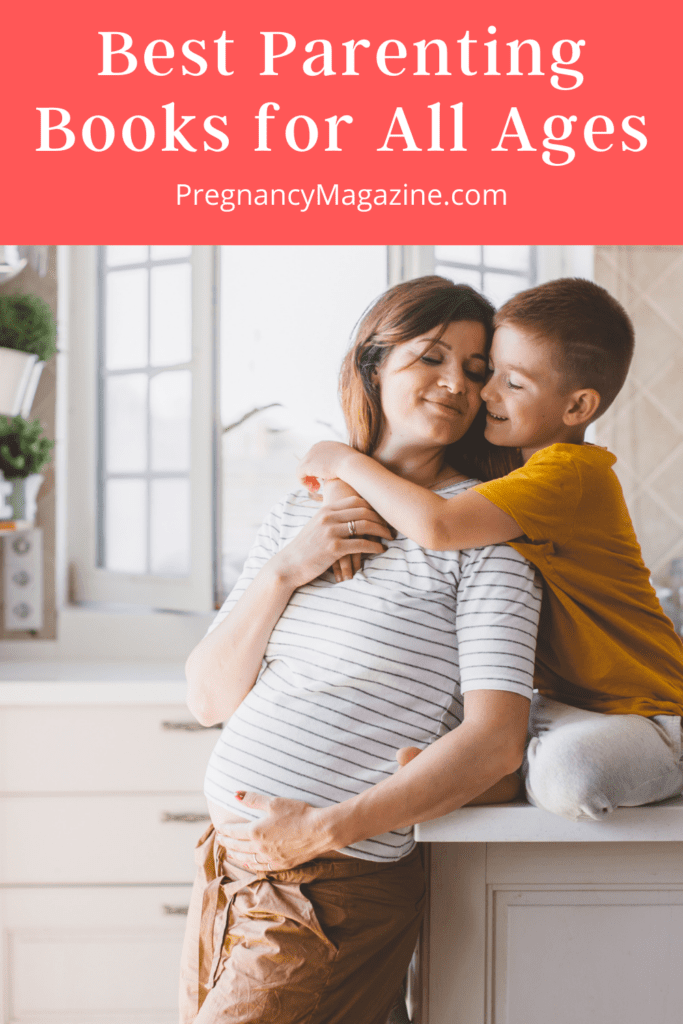
Best Parenting Books: Pregnancy
Asking for a Pregnant Friend
This pregnancy book by Bailey Gaddis differs from nearly everything you’ll find online and other parenting books about pregnancy. After all, why would you even need a book when you have the Internet at your fingertips? What you’ll find here are all the questions you might hesitate to type into your friendly neighborhood search engine. The things you really want to know. She covers everything from what different types of births are really like, to questions about intimacy, postpartum struggles, relationships, and a whole lot of science (and useful tools) to combat our fears.
Best Parenting Books: Babies
New parents need sound advice, not old wives’ tales or other outdated information. They want information that supports their children’s brain development, well being, and optimal growth. We’ll never say a book is one of the best parenting books if it’s linked to adverse outcomes (as one very popular baby book is — please do your research before you buy into the latest fad).
The Bottom Line for Baby
Need science? This book is a gold mine of research from one of the world’s leading parenting experts, Tina Payne Bryson, Ph.D. It’s unbiased and compelling; you’ll know exactly what the science says about nearly all of the most important topics related to babies. In fact, Dr. Bryson rarely (if ever) tells parents what to do — which is part of the reason it’s so trustworthy.
Parents can do their own decision-making — she’s not judging. She’s simply educating in ways that make sense, as a good friend would. Best of all, she doesn’t share an overwhelming amount of information — she shares just what you need to raise the healthiest, happiest baby possible. Plus, the way she presents her research is completely readable — and for bonus points, it’s downright enjoyable. (I didn’t know a baby book could do that, but Dr. Bryson found a way!)
On occasion, she shares the choice she made for her family along with her reason why, in addition to hilarious and personal anecdotes. It’s a must read for new moms and dads making their foray into parenthood.
Of all the books we could read during pregnancy to make the entire first year easier, this would be it. It takes an incredible weight off our shoulders!
The No-Cry Sleep Solution
The No-Cry Sleep Solution is another “must read” on the list of best parenting books for the new parent. Many new moms and dads believe that the only two options for sleep are either 1) leave their baby to cry without support (which we’ll never advocate), or 2) relegate themselves to being “trapped” under their sleeping babies and toddlers until one day these children magically grow up and move out, finally able to doze off on their own.
Elizabeth Pantley shows us there’s another option. She guides us through the first few months with baby, then into the much older months, if necessary (especially for those who didn’t try her guidance sooner).
She doesn’t just give advice based on raising her own four children; she’s worked directly with thousands of moms and dads around the world who were desperate for sleep. With her help, they found it. You can, too.
There are many good reasons she literally changed the landscape for gentle parenting when she first released this book years ago — and why it stood the test of time until this new version was recently released. It’s the gold standard for gentle sleep advice.
Plus, it’s written with so much warmth and love — it feels like she’s part of the family and understands all the emotions that come with being exhausted parents of little ones. She simply “gets it.” And she’s here to help. (Thank goodness!)
Best Parenting Books: Toddlers
Have you ever heard of the terrible twos? Of course you have — they’re notorious! Perhaps surprisingly, though, the nickname might not be accurate at all. The “twos” can be truly delightful. There’s so much more to parenting this age than tantrums, potty training, and nap times.
These authors can help you reframe the “terrible twos” into the “terrific twos” — because toddlers really can be terrific. So much of parenting these beautiful emerging personalities comes back to understanding child development.
These are some of the best foundational books for parents. As a bonus, the wisdom in these books goes way beyond toddlerhood. You’ll be returning to them again and again through the years. They’re the perfect mix of conventional wisdom and the latest in attachment and brain science.
Parenting Right from the Start
Dr. Vanessa Lapointe’s Parenting Right from the Start is a wonderful resource to support the parent/child relationship in the early years. The author is entirely relatable as a mother. When we read her book, we feel like we’re talking among friends — and yet, she expertly helps us lay the groundwork for a lifetime of connection.
She’s not just about the “how to” of parenting; she gives us the WHY. She helps us love our child well, seeing them from the lens of attachment. With Dr. Lapointe in our corner, there’s much hope for an ongoing and positive relationship with our little ones throughout their lives.
Dr. Lapointe also offers an online course (40% off with the code DANDELIONSEEDS).
Peaceful Parent, Happy Kids
Dr. Laura Markham is known internationally for writing some of the best parenting books, for very good reason. Her common sense approach to positive discipline makes perfect sense — and yet, it can feel counterintuitive to those of us who were raised by authoritarian parents. In Peaceful Parent, Happy Kids, she clearly explains how to parent in a way that feels better to both parents and children. It doesn’t just feel better, though — science proves positive, authoritative parenting really does result in better outcomes for children.
Her suggestions are truly peaceful, kind, and empowering. They help parents raise children who simply want to do well for their parents because the relationship is based on connection. It’s an absolute win/win!
She also offers a life changing online course.
Positive Discipline
Jane Nelsen was one of the pioneers of gentle discipline. She values children as being worthy of respect from the start; she has a knack from seeing the world from their perspective. Furthermore, she helps us connect the dots between how we treat children and how they respect (or don’t) respect us as they get older.
What we like about Jane Nelsen’s Positive Discipline book is that she’s clear and her suggestions are actionable. She helps us connect the dots and take the first steps into gentle parenting, even if we weren’t raised this way. What a gift she is.
Best Parenting Books: Preschoolers & Elementary Age
Peaceful Discipline: Story Teaching, Brain Science, and Better Behavior by Sarah R. Moore
This best-seller, Peaceful Discipline, is endorsed by some of the world’s leading experts in child development and psychology. It explores:
- The body-brain connection to behavior, why most “consequences” don’t work, and what to do instead
- How parents and children can regulate their nervous systems to foster greater connection, even in the thick of adversity
- How to use different types of storytelling and play as effective and benevolent teachers
The author, who’s a Master Trainer of conscious parenting and who has training in child development, interpersonal neurobiology, and improv comedy, covers these topics from the contexts of neuroscience, attachment theory, and best practices of connection-based parenting. This highly accessible, easy-to-understand, and practical book helps mitigate adults’ very real struggles, and gives them specific strategies that increase cooperation and connection with the children in their lives.
Simplicity Parenting by Kim John Payne
This phenomenal parenting book shows parents that the key to “success” in life isn’t about doing more; it’s about raising children to find joy in the stillness and natural rhythms of everyday life. Much of his work applies beautifully to older children, as well.
Many parents, and even adults who aren’t parents, focus heavily on “achievement,” but at what cost? This well written book gives us permission to parent in a way that promotes a greater sense of peace for the family.
It’s not that “achievement” is holistically a bad thing; it’s not. This book reminds us, however, of the incredible importance of balance. Children often don’t need more to do; so much more deeply, they crave and thrive on simple, loving connections with the people around them.
The Danish Way of Parenting
Want to talk about one of the best parenting books that simply moves us? The Danish Way of Parenting is one of our all-time favorites. Once you read it, you’ll plainly see why Danish adults are consistently rated as among the happiest in the world — it all goes back to their childhood!
It offers a wonderful and much needed paradigm shift from adults needing to act in control-based ways, to ways that nurture the parent/child dyad from the inside out. A kid is seen as “whole” from the very beginning. When grown-ups can see that and treat them accordingly, it sets the stage for an ongoing and peaceful relationship. If ever a book makes us say, “Oh, now I get it” — this is it. We love this book.
Beyond Behaviors
In Beyond Behaviors, Mona Delahooke brilliantly balances science with heart, helping us reframe our children’s behavior from a place of judgment to a place of deep understanding. It’s rare to see any book, much less parenting books, with 1000 5-star reviews — yet this book very much warrants every bit of praise it’s achieved. In short, it’s life changing. We see positive results with it so quickly, sometimes, that we wonder why we ever did anything the “old” way. Bonus, we don’t feel shamed into changing our ways — rather, we feel empowered. Educated. Capable. What a great place from which to parent.
The author has an incredible knack for making us want to dig deeper; to look into the very soul of our beliefs about parenting. She helps us heal from a place of understanding and education, giving us a clear path forward.
Untigering
Iris Chen has beautifully unpacked authoritarian parenting and how damaging it can be to children in her wonderful book, Untigering. She shares examples not only of how to “deconstruct” unhelpful patterns, but also what to replace them with so that relationships with our kids can flourish.
This is among the best parenting books to address cultural differences that can make parenting differently from our families of origin feel so tricky sometimes, yet she handles the topic in a way that gives us comfort, encouragement, and hope.
The Whole Brain Child, No Drama Discipline & The Power of Showing Up
We confess that we’re cheating a bit here: we’re grouping so much goodness from Daniel J. Siegel, M.D. and Tina Payne Bryson, Ph.D. It’s impossible to choose just one of their books (not to mention volumes of other great work they’ve done!).
The Whole-Brain Child is simply a must; it teaches parents so much about kids’ brain development, emotions and emotional regulation, and ways adults can make sense of child behavior. It’s on our list of foundational and best parenting books for raising good humans. Please don’t miss it.
No-Drama Discipline helps parents avoid power struggles and is clear about what not to do (and why), along with what to do, instead. It’s practical and gives such clear examples; it’s like having a parenting roadmap in hand. We love everything about this book.
Additionally, in The Power of Showing Up, they dive deeper into attachment science in a way that speaks to the heart as much as it does to the brain. This book makes us want to show up for our kids in all the best ways.
In our list of best parenting books, these three take the triple crown.
How to Talk so Little Kids Will Listen
We buy this book for a lot of people: for first-time parents and caregivers, and for adults who tell us they’re struggling with issues related to cooperation. What we love most about it is that it’s so versatile. The ideas herein give you a diverse set of tools to try, depending on the situation. Anytime a book isn’t a one-trick-pony, I’m all in. Different kids need different solutions just like the rest of us do, right?
The authors clearly have firsthand experience with children (as we’d hope and expect), and it’s nice to see their real-world applications come to life in our own homes.
Playful Parenting
Playful Parenting makes parenting easier, plain and simple. We all want that, don’t we? Larry Cohen, PhD gives us tools to use every single day to encourage cooperation, connection, empathy, and joy among parents and children.
His book has been another of our go-to resources. Not only does play make everything easier, but with enough practice, it actually becomes a way of life. We’re sincerely thankful for his approach. This book is so much more than meets the eye; it really is the key to connection and building a positive foundation for a lifetime of really “seeing” the person in front of us, even when they’re well past childhood. Additionally, we love that in this book, he’s not telling us that play means entertaining our kids 24×7. That’s not how it works. We get to be real and authentic. Another huge win for parents and kids.
Thrivers
One of the best parenting books to be released during the past year was Thrivers by Michele Borba, M.Ed. The information in this book applies to young kids as well as older ones. In short, the world has seen an incredible decrease in kids who are thriving. Emotional turbulence, anxiety, and other serious problems are at all-time highs.
The author gives us clear steps to combat the challenges our kids are facing. She shows exactly what we need to do to raise kids who truly can — and do — thrive, even despite incredible adversity. It’s an absolute gem of a book for which kids and parents will both be better. It holds an incredibly solid place on our list of best parenting books. Plus, she’s such a wonderfully loving person — we can’t help but want the whole world to know her and her amazing work. She gives us so much hope for our children.
Differently Wired
Debbie Reber is a gift to parents of children who are neurologically atypical. Her book helps parents embrace and fully support their kids for who they are. She understands firsthand the self-doubt, fear, and other emotions that can overcome parents when they realize their kids aren’t like neurotypical children. Her guidance in Differently Wired is like a lighthouse shining guidance from uncertain waters, leading us with greater clarity.
She talks us through what can sometimes be an emotional as well as a logistical roller coaster, giving parents hope no matter what they’re dealing with. She balances “mother wisdom” with practical advice to help us raise successful, happy kids no matter their abilities.
The Self-Driven Child
We all want kids who are motivated and easier to raise, right? This book by William Stixrud, Ph.D. and Ned Johnson offers us exactly that. It’s not just about raising the next CEOs, however — it’s about nurturing intrinsic motivation to help children thrive in whatever they’re destined to do.
Perhaps surprisingly, however, it doesn’t suggest we should make our kids busier and stuff activities into their schedules to see what “sticks.” It’s about parents stepping back and trusting. It’s about ways to offer children more autonomy, and freedoms big and small. From those freedoms comes greater self-agency.
What Do You Say? How to Talk with Kids to Build Motivation, Stress Tolerance, and a Happy Home
Written by the same authors as The Self-Driven Child (can you tell we like them?), What Do You Say? is a must-have for all caregivers. Period.
Undoubtedly one of the best books released this year, and certainly one of the best parenting books released within our lifetime, this guide supports parents and caregivers to develop connection-based relationships with their children.
What we love about this book is that it has no expiration date, or even a “best by” date, for that matter. We can start implementing the approaches when our kids are little and carry them throughout our entire relationship, even into their adulthood.
Empathy, compassion, and connection will simply always matter. They lay the groundwork for a positive outcome for literally every interaction we have with our kids. Does that mean things will always be easy? Of course not. These guys aren’t magicians. But they’re two of the smartest authors we know, with some of the best guidance, and with some of the most enjoyable and relatable writing we’ve encountered.
The Explosive Child
Ross Greene, PhD saved the world a whole lot of heartache when he wrote The Explosive Child. For perhaps the first time, parents were empowered to look at what was driving their children’s explosive behavior — and approaching it from a perspective of problem-solving and collaboration rather than punishment.
In this paradigm-shifting book, we learn how to take our kids’ behavior less personally. We learn how to hold our own reactions and get really curious about what’s going on beneath the surface. From here, only good things can happen — we free ourselves from no-win situations and unnecessary power struggles. We don’t need more distance and strife in our lives; Dr. Greene helps return some peace to our homes. We’re sincerely thankful for his collaborative approach to addressing explosive behavior.
Best Parenting Books: Middle School & Above
Middle School Matters
Phyllis Fagell is brilliant, plain and simple. She sees firsthand the lives of middle schoolers every day, and she knows their world intimately. With this insight into their lives, she knows the emotional and physical changes they’re experiencing — and how to help kids navigate friends, peer pressure, and the host of other issues they face. Through Middle School Matters, she helps parents learn how to listen to what our kids aren’t saying, how to encourage them to talk to us, and how to support them accordingly.
She makes sense of everything middle school — a much needed gift to parents and educators alike. Her gift for helping children deal with the incredible changes that these years bring can positively affect all their relationships, now and for years to come. Please don’t miss this book if you have kids entering or already in middle school.
The Good News about Bad Behavior
In The Good News about Bad Behavior, Katherine Reynolds Lewis brilliantly balances the science behind WHY our parenting choices matter, with the understanding of real-world application. This is the kind of book that elicits unexpected exclamations of “Ahas” and “Oh wows” — it’s incredibly compelling while still being an easy read. She covers topics that matter today, and how we, as parents, can handle common trigger points with clarity and grace.
How to Raise an Adult
Julie Lythcott-Haims eloquently and helpfully reminds us that we’re not raising children to keep them stuck forever as children. To be sure, she doesn’t advocate rushing adulthood; to the contrary, she embraces childhood for the gift that it is.
At the same time, in How to Raise an Adult, she empowers us to grow competent humans who don’t still need their parents to change their diapers and cook their meals when they’re out on their own someday. She helps release us, and our children, from the burdens of “over parenting” — while still maintaining a loving and healthy connection with one another.
For children who are closer to being ready to launch, make sure to check out the author’s latest book, as well. Your Turn: How to Be an Adult is every bit as good — full of heart, practical tips for real life, and genuine humor (not to mention all the other feels).
The Addiction Inoculation
Jessica Lahey hooked us on her writing with The Gift of Failure (and it, too, is way up near the top of our “must read” list).
Here’s the tough message of The Addiction Inoculation: if you wait until your child is in high school or college to think the pressure to engage in substance abuse is present, it’s already too late. Kids are exposed to substances much earlier than ever before. However, rather than leaving us feeling overwhelmed, she empowers caregivers with specific and actionable steps we can take to help protect our children — without keeping them in the proverbial bubble. Her vulnerability in sharing her own journey, coupled with her research, science, and support for the proactive measures we can take, make this a clear “must read.”
Happy Campers
Happy Campers by Audrey Monke is a new favorite. Not only is it full of the science I love so much (and that I’ve required for a book to appear on this list), but it’s also incredibly practical and easy to read. It gives adults strategies they can use with the kids in their lives starting today — no ramp-up required. It helps build connection in all the best ways. Even if you’ve never been a camper, you can still learn many of the best takeaways from the author’s experience working with thousands of children from all walks of life.
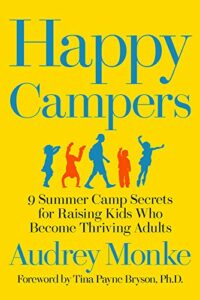
Best Parenting Books: for Educators
The Why Behind Classroom Behaviors and Creating Sensory Smart Classrooms
Jamie Chaves and Ashley Taylor understand how to help kids thrive in the classroom — and how to support teachers in highly practical and effective ways. They know that different kids have different requirements for sensory and other input, and that there’s no “one size fits all” for kids’ learning styles. They empower teachers to support their pupils in ways that can make teaching, as well as learning, easier for everyone. We strongly recommend both The Why Behind Classroom Behaviors and Creating Sensory Smart Classrooms.
Parenting Books that Matter
We’re recommending the best parenting books to you as if you were a dear friend, not suggesting them just because they’re popular. True, some of them have been international best-sellers for years. They’re there for good reason — and we wholeheartedly agree with their rankings.
And of course, as with all things parenting, you know your child best. You know their heart and their strengths — and you know your own, too.
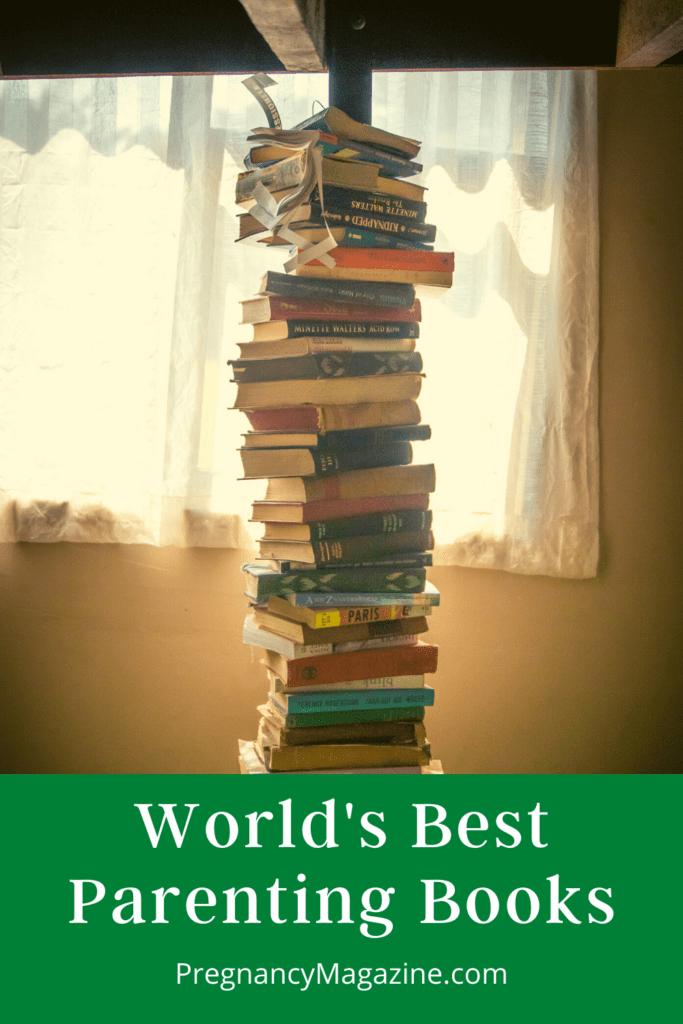
Parent Coaching
Even with all the best parenting books in the world, please remember that no parent is perfect all the time. If you need additional support, a good parent coach can help.
About the Writer
Sarah R. Moore is the founder of Dandelion Seeds Positive Parenting. As a certified gentle parenting coach and Master Trainer for the Jai Institute for Parenting, she’s a regular contributor to international parenting magazines, as well as frequent guest on podcasts and parenting summits. She offers a popular series of mini-courses, webinars, and expert interviews. She’s currently writing her first book. Follow her on Instagram, Facebook, Pinterest, Twitter, and YouTube.


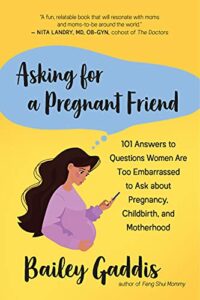
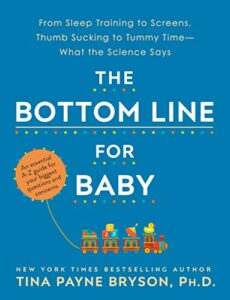
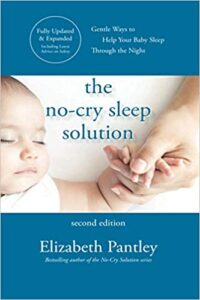
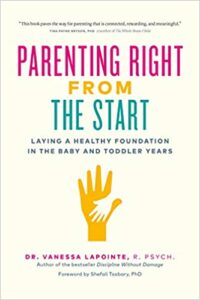
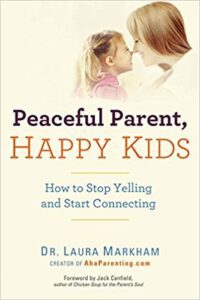
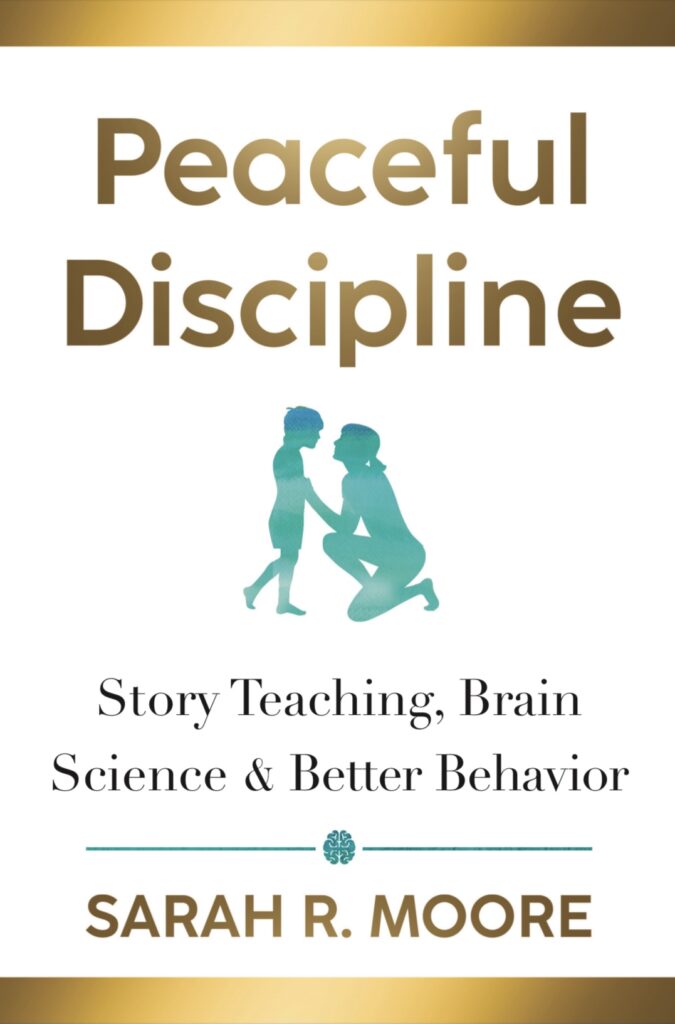
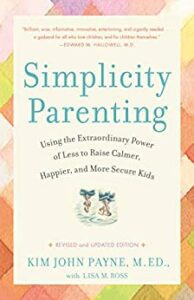
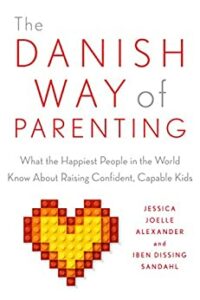
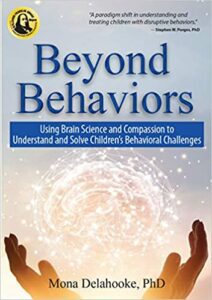
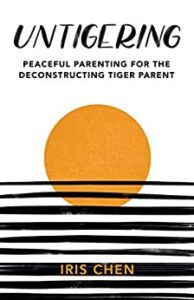
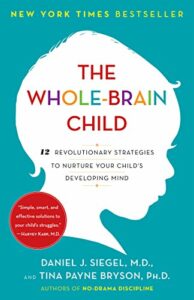
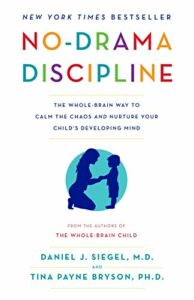
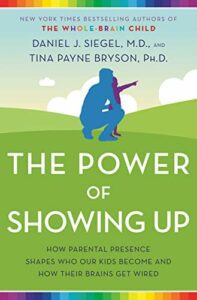
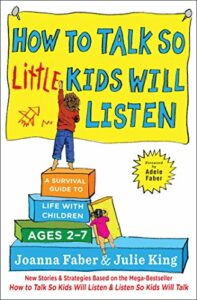

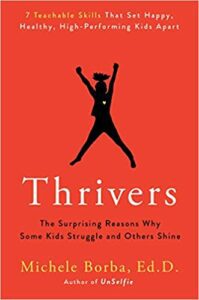
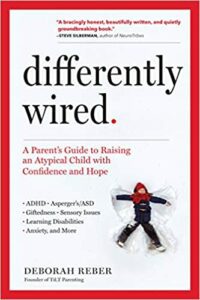
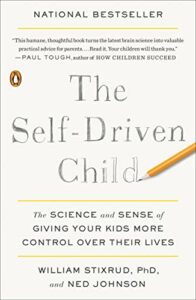
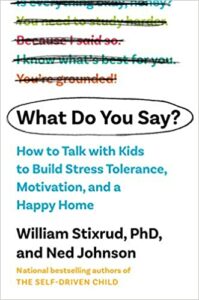
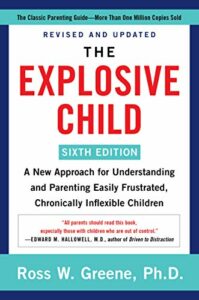
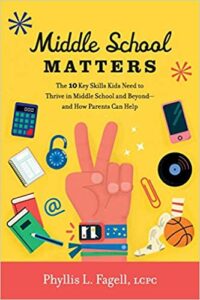
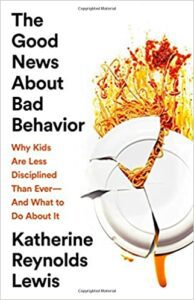
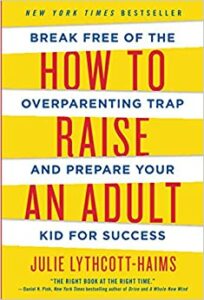
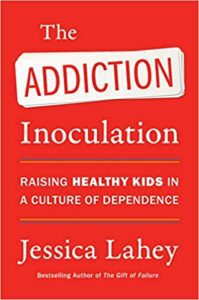
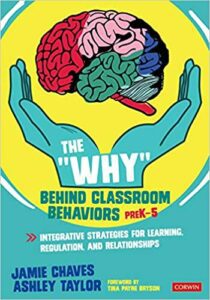
Sorry I missed this issue for Best Books. My recently released book “Raising 4 Dimensional Children in a 2 Dimensional World” takes an unique approach to parenting, beginning with prenatal care and continuing through the teenage years. It provides the information young adults need when it comes time to begin a family.
This new book is unique in several ways:
First, it addresses the needs of children in the 4 dimensions of human experience: Physical, Mental, Emotional, and Spiritual. No other book I am aware of takes this approach.
Second, it is based on the latest research in developmental child psychology, with hundreds of references to papers by experts.
Third, it provides over 400 age-appropriate activities parents can enjoy with their children, based on the child’s capabilities at each stage of development. This feature is especially valuable as many schools are returning to distance learning this year and parents need help.
Fourth, it addresses the common issue that kids are spending too much time on their phones and computers, and not enough time in the real world.
Finally, it makes the information affordable to everyone, as parents can buy the chapter appropriate for their child’s age for less than a dollar.
You can learn more about the book at https://4d-2d.com. Of course we will send you an e-copy or a paperback copy to review if you are preparing an updated article or for your next book review.